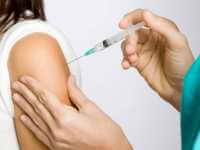Blog
Main health care when traveling to Brazil

When visiting someplace new, we all have some concerns about health care. If you are planning your visit to Brazil, you might be thinking about this as well. So, what are the main health care when traveling to Brazil?
Table of Contents
ToggleHealth care system in Brazil
 Health care is a constitutional right in Brazil. Public health care is universal and free for everyone, including foreign tourists. The universal government-funded health system in Brazil is called SUS (Sistema Único de Saúde, aka Unified Health System). It serves the population completely free of charge.
Health care is a constitutional right in Brazil. Public health care is universal and free for everyone, including foreign tourists. The universal government-funded health system in Brazil is called SUS (Sistema Único de Saúde, aka Unified Health System). It serves the population completely free of charge.
Foreign tourists with health problems can also seek care in the emergency care network for free. A few options are the Mobile Emergency Care Service (SAMU), the Accident and Emergency Units (UPA), and emergency hospitals.
Zika virus and Dengue fever
Brazil has a high risk of Zika virus and Dengue fever transmission. Travelers should follow basic health care when traveling to Brazil by taking steps to avoid mosquito bites. Such measures include the use of insect repellent, long-sleeved shirts, and the use of window screens in the bedrooms when possible.
The Zika virus can be a serious danger for pregnant women and their unborn babies. The World Health Organisation recommends travelers to protect themselves thoroughly, using suitable DEET repellents.
Vaccination
 The International Certificate of Vaccination or Prophylaxis is not required for foreigners upon entry to Brazil. However, the Brazilian Ministry of Health highly recommends tourists get the yellow fever vaccine at least 10 days before traveling.
The International Certificate of Vaccination or Prophylaxis is not required for foreigners upon entry to Brazil. However, the Brazilian Ministry of Health highly recommends tourists get the yellow fever vaccine at least 10 days before traveling.
The recommendation is to have the vaccine, especially if visiting the North and Central West regions of Brazil for ecotourism. You can check out the list of Brazilian municipalities with recommendations on vaccination against yellow fever here.
Tap water
Even though tap water is typically safe to drink in Brazil, we do not recommend it. You should not drink tap water unless boiled or sterilized first.
In Rio de Janeiro, for instance, the water company uses a few chemical components, such as chlorine and fluorine, to treat the water. Old pipes and rust might also affect the water, as well as aluminum found in the plumbing.
In Brazil, most residents have filters in their homes to make the water safer to drink.
Travel Insurance
As we have stated before, foreigners can use emergency health care for free in Brazil. However, we highly advise you to get travel insurance for your health care when traveling to Brazil. It is important to note that accessing medical services through the public system can often involve long wait times to see a doctor or receive treatment. This delay may not be ideal, especially for travelers with urgent medical needs. Therefore, having adequate insurance can provide peace of mind and financial protection in unforeseen situations.
Emergency Numbers
If you find yourself in a difficult situation in Brazil, here are the telephone numbers of emergency services and rescue services organizations that ensure public health in Brazil:
- Police: 190
- Ambulance: 192
- Firefighters: 193
Medications
If you rely on prescription medications, ensure that you have an ample supply for the duration of your trip. Carry medications in their original packaging, along with a copy of your prescription and a letter from your healthcare provider explaining your medical condition and treatment.
Over-the-counter Medicine
If you need to visit a drugstore to buy over-the-counter medicine, here are the correct terms in Portuguese:
- Analgésico: pain reliever
- Antialérgico: for allergies
- Antitérmico: for fever
- Relaxante muscular: for muscular pain
- Remédio para enjoo: for nausea
- Antigripal: for cold, antiviral flu drugs
Others:
- Repelente: insect repellents
- Protetor solar: Sunscreen
- Hidratante labial: lip balm
- Loção pós-sol: after-sun lotion
- Curativo (band-aid): adhesive bandage
Main health care when traveling to Brazil
Finally, practice responsible travel behaviors to minimize your impact on local communities and the environment. By respecting local customs, supporting sustainable tourism initiatives, and prioritizing your health care when traveling to Brazil, you can enjoy a fulfilling and memorable experience in the country.
Moreover, prioritizing your health care needs is essential when traveling to Brazil. By conducting thorough research, obtaining travel insurance, and taking preventive measures, you can ensure access to quality health care and enjoy a safe and enjoyable trip. Remember to stay informed, practice responsible travel, and seek assistance when needed to make the most of your Brazilian adventure. Safe travels!
Caminhos Language Centre is the largest and most exciting Portuguese school in Rio de Janeiro, Brazil. We have an excellent infrastructure, over 15 experienced Brazilian teachers, and a friendly multilingual support staff. We are the only school in Brazil able to offer Portuguese group courses throughout the year on 10 different levels. Moreover, our school also offers more than just Portuguese lessons for foreigners, we offer you the complete Rio de Janeiro experience. Every day we organize 100% free and fun activities for you to socialize and practice your Portuguese. We can also help you with a student visa for Brazil and accommodation in Rio de Janeiro. Follow us on Instagram for some Portuguese tips and news.


 Deutsch
Deutsch Français
Français Português
Português Español
Español



Quisiera acseder al seguro de sus de brasil comk puedo hacer porfavor